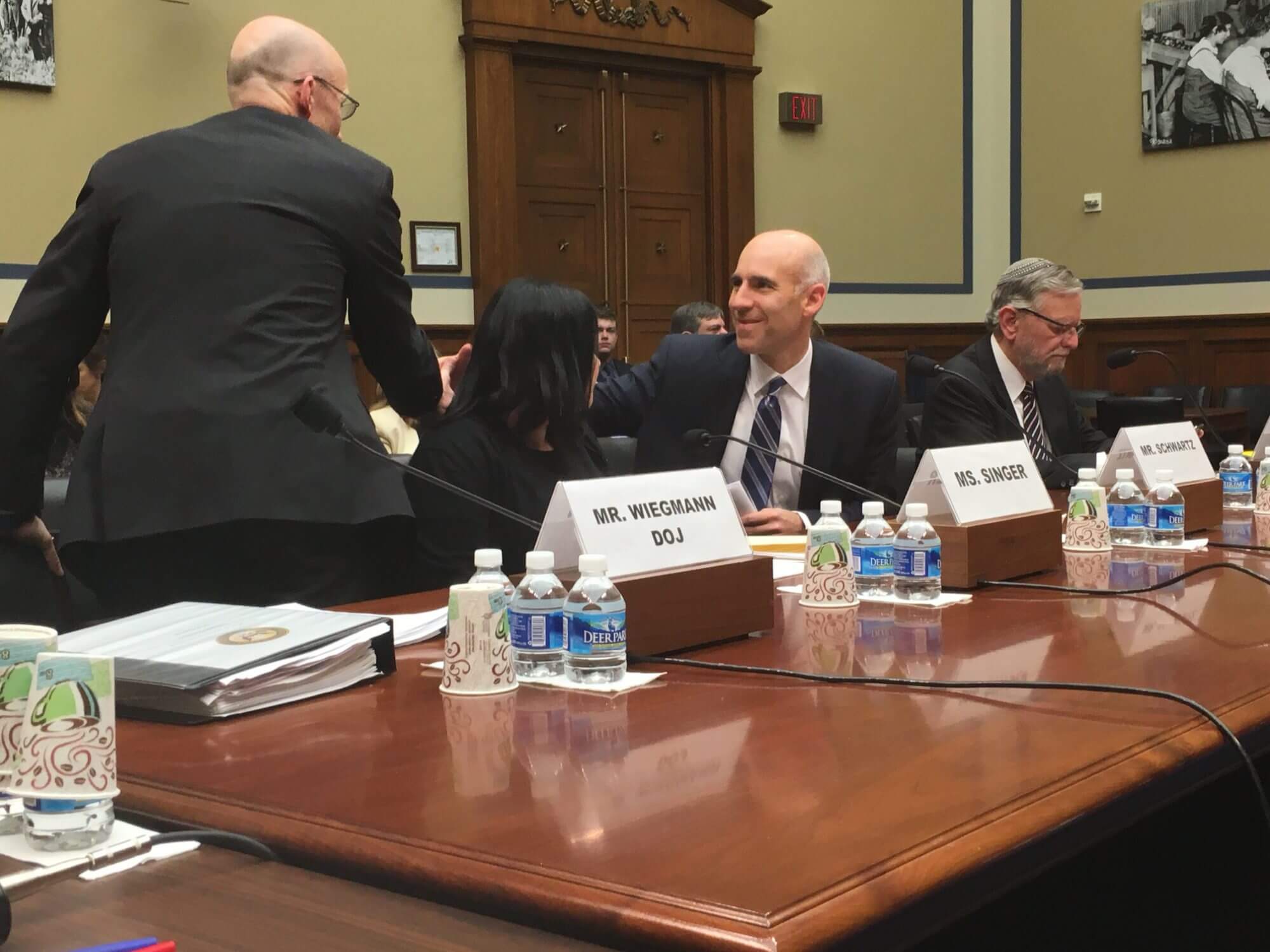WASHINGTON — Foreign prosecutions are the best and sometimes only option for justice for American victims of overseas terrorism, especially attacks in Israel, a deputy assistant attorney general told a House oversight subcommittee Tuesday.
The hearing was spurred by the recent murder of 18-year-old Ezra Schwartz in the West Bank by a Palestinian. Schwartz, an American citizen from Boston, was attacked while volunteering at a park with five other Americans, all of whom sustained injuries in the attack as well.
Schwartz’s uncle, Peter Schwartz, was invited to share Ezra’s story with the panel.
Brad Wiegmann, the deputy assistant AG at the Justice Department’s national security division, said protecting Americans abroad from terrorism is the agency’s “highest priority.” But he said there are several impediments to U.S. prosecutions of Palestinians who target American citizens in terrorist acts.
U.S. prosecution requires foreign cooperation and collection of evidence that meets the standard of American courts, which is unnecessary in countries with strong prosecutorial systems such as Israel’s, he said. And Wiegmann acknowledged that Israeli and American interests do not always align, which can make it hard to prosecute certain cases if Israel wants to handle them domestically.
Rep. Ron DeSantis, R-Fla., chairman of the panel, challenged Wiegmann, saying that the Office of Justice for Victims of Overseas Terrorism in his division has yet to act on cases in Israel.
Weigmann responded that “the absence of public charges does not mean there are no charges or that no such charges will be brought. Successful charges have also been brought years after the attack.”
The Justice Department provides a variety of services to aid victims of terrorism, such as financial and logistical support for attending trials in other countries, Wiegmann said. Additionally, the department is able to share confidential information and private information from ongoing foreign prosecutions with victims, he said.
But that’s not enough for victims, said Sarri Singer, an American citizen and director of a terrorism victims’ group. Singer told of her experiences as the victim of one such attack. She was on Bus 14 in Jerusalem in 2003 when a young Palestinian suicide bomber on the bus blew it up.
“There’s a nonexistent record of seeking extradition for Palestinian terrorists,” Singer said. “I hope the government can restore our faith that they’re on our side.”
Singer specifically noted Israel’s release in 2011 of more than 1,000 Palestinian prisoners – including terrorists convicted of attacking Americans – in exchange for Israeli soldier Gilad Shalit as an example of why U.S. prosecution is needed.
Wiegmann said the U.S. Justice Department had opposed the Shalit prisoner deal made by Israel, and noted that the U.S. retains the right to prosecute those prisoners under U.S. law since they have been released from prison in Israel..
While he said he could not comment on specific cases, Wiegmann said the Justice Department has doubled its efforts on those investigations and will bring charges in the cases when possible.
Arnold Roth, whose daughter died in a suicide bombing in Israel a few months before the 9/11 terrorist attacks, agreed that the Justice Department was not doing enough for victims.
“The DOJ has been unfailing in its courtesy, responsiveness and attention to victims,” Roth told the subcommittee on national security. “But there has been very little in the way of results.”
Both Singer and Roth said they hoped the subcommittee hearing would pressure the Justice Department to start producing tangible progress on cases of victims like them.


